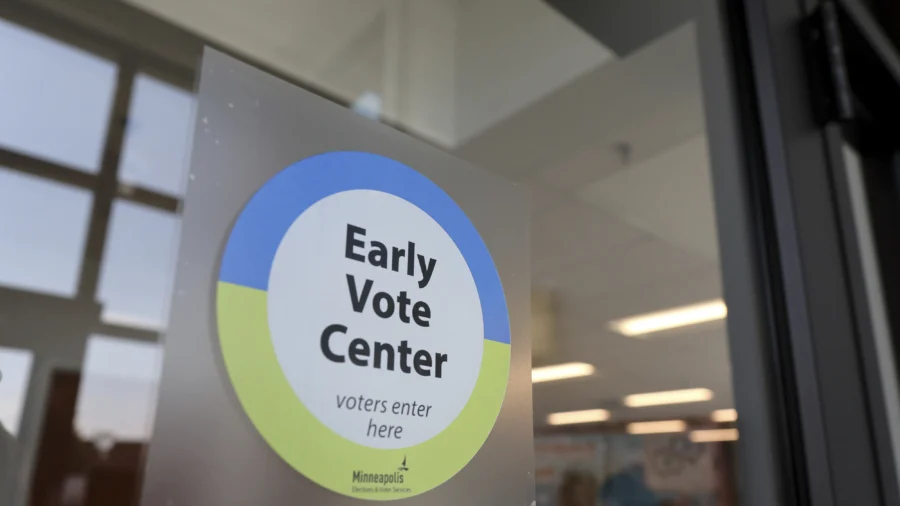MINNEAPOLIS—The Democratic and Republican national conventions are just a memory, the first and perhaps only debate between Vice President Kamala Harris and former President Donald Trump is in the bag, and election offices are beginning to send out absentee ballots.
Now come the voters.
Friday is the start of early in-person voting for the 2024 U.S. presidential election, kicking off in Virginia, South Dakota and Minnesota, the home state of Harris’ running mate, Gov. Tim Walz.
The first ballots being cast in person come with just over six weeks left before Election Day on Nov. 5. About a dozen more states will follow with early in-person voting by mid-October.
“If I could wave a magic wand in this room right now, I would wish for two things: Between now and November 5th, I want to see high turnout and low drama,” Minnesota Secretary of State Steve Simon said during a news conference Thursday that previewed his state’s efforts around the election season. Simon also serves as president of the National Association of Secretaries of State.
Across the country, local election directors are beefing up their security to keep their workers and polling places safe while also ensuring that ballots and voting procedures won’t be tampered with.
Federal authorities are investigating the origin of suspicious packages that have been sent to or received by elections officials in more than 15 states in recent days, including Virginia.
In Virginia, early in-person voting has long been popular in the city of Chesapeake, especially during presidential elections, said its elections director, Mary Lynn Pinkerman.
She expects early voting to help ease the crowds on Nov. 5, but also cautioned that Election Day voting “is certainly not a thing of the past” and that “voters could still encounter wait times.”
Fairfax County Elections Director Eric Spicer said roughly a third of local voters came to the polls on Election Day during the 2020 presidential election, while the rest voted by mail or early and in-person.
“We call them our cicada voters who come out every four years,” he said, adding that he expects this year’s presidential race to drive heavy turnout in his northern Virginia county.
In South Dakota, the top election official in Minnehaha County, the state’s most populous, is planning for an 80% overall turnout. Extra seasonal workers began Monday, and an early voting area was set up in the county administration building in Sioux Falls.
County Auditor Leah Anderson said the presidential race and several statewide ballot measures—including one that would enshrine abortion rights in the state constitution and another to legalize recreational marijuana—will attract voters.
“There’s a lot on our ballot,” Anderson said.
Many early voters might opt for early in-person balloting instead of mail-in absentee ballots to ensure their votes get counted, given the ongoing struggles of the U.S. Postal Service.
State and local election officials from across the country last week warned that problems with mail deliveries threaten to disenfranchise voters, and they told the head of the system that it hasn’t fixed persistent deficiencies despite their repeated attempts at outreach.
Postmaster General Louis DeJoy responded in a letter released Monday that he’ll work with state election officials to address their concerns, but reiterated that the Postal Service will be ready.
Simon urged voters to make their voting plans now. Mail delays vary across the country, he said, so voters should request mail-in absentee ballots early if they plan to vote from home, and return them early. Some states count ballots as long as they’re postmarked by Election Day, while Minnesota and other states count only the ballots that arrive by the time polls close.
“My hope and expectation is that the USPS will do the things that we have recommended, and do them quickly over the next 47 days because the stakes really are high for individual voters,” Simon said.
By Steve Karnowski

